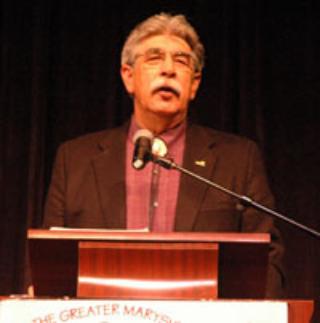By Holly Glen Gearhart
Snohomish County’s Housing Hope organization is holding a dinner on May 16 at the Tulalip Resort to raise fund to continue with their mission to “…promote and provide a continuum of safe, decent, affordable housing and necessary related services for very low and low income residents of Snohomish County and Camano Island.”
Begun in 1987, Housing Hope has had a hand in fifty-three housing developments countywide, and currently manages 354 units in 18 housing developments. They have served 238 families who have built and achieved homeownership through the sweat equity program.
Sweat equity is a term coined to express the large participation clients perform to offset the money down to own a home. Simply put, sweat equity comes from a participant literally joining in on the building of the home; a number of hours on the job equals the equity needed to buy the home.
Many of those residents live in the Sky Valley, where Housing Hope is especially active. There are 34 affordable housing units in Monroe alone, with 47 more in the planning stages. That will bring the number of units of affordable housing in the east county to 155, of which 68 are owned homes built through the self-help housing program.
And that is projected to bring $20 million in economic activity to the area.
In addition to housing, Housing Hope provides many of the families and individuals they serve with intensive case management, providing education enhancement, preparation for employment and other life skills through their College of Hope program.
They provide emergency shelter at Windermere Crossroads Shelter in Everett and at Lervick Family Village in Stanwood that can house entire families for up to 90 days. After their time in emergency shelter the family typically moves onto transitional housing.
These programs work to ensure that residents will achieve and become self-sufficient for life once they move off of assistance. Housing Hope helps attend to the causes that forced families and individuals into homeless. Housing Hope works to end the entrapment of the “circle-of-poverty” which often leads to a toxic outcome.
Children receive special needs assessments through the Tomorrow’s Hope Childcare Center at Housing Hope; in turn the child gains assistance from the school liaison program. The program is designed to help the child succeed in class. Each child has individualized attention by a child specialist that serves to ready them for a good outcome in their school years, giving them skills that will be with them for a lifetime.
The fundraising event, known as Stone Soup, will begin with a social hour at 5:30 p.m., followed by dinner and a program at 6:30 p.m.
Reservations are requested in advance; phone Kelsey Dosen at (425) 347-6556 (ext 279) or email kelseydosen@housinghope.org. The Tulalip Resort is located at 10200 Quil Ceda Blvd. in Marysville.
Proceeds directly support the community efforts of Housing Hope. For more information please visit www.housinghope.org.















